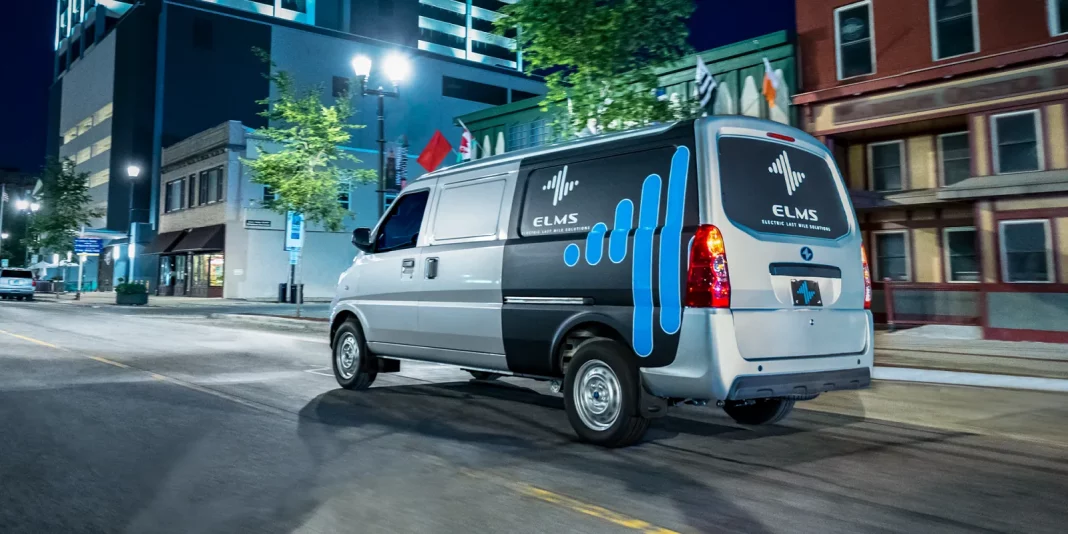After a grueling start to the year, commercial electric vehicle company Electric Last Mile Solutions will cut its losses. On June 12, interim CEO and president Shauna McIntyre announced that the company would file for Chapter 7 bankruptcy.
The news comes amid a tumultuous few months that includes the resignation of the ELMS founder and former Executive Chairman, Jason Luo, as well as the former CEO, Jim Taylor. The company shed roughly half its stock price overnight in February after announcing the leadership transition and updating the company’s financial status. Since the beginning of the year, the stock price has vaporized from $6.93 per share to just $0.20 per share as of Monday, more than 97% down.
ELMS reached $14.00 per share on the NASDAQ market in December 2020, shortly after merging with SPAC Forum Merger III Corporation.
The startup will now liquidate its assets in Chapter 7 proceedings. McIntyre said in the news release, “I’m very disappointed by this outcome because our ELMS team demonstrated incredible determination to get our electric vans ready to meet the critical need for clean, connected vehicles that reduce carbon emissions from ground transportation.
“Unfortunately, there were too many obstacles for us to overcome in the short amount of time available to us. I could not be prouder of what our team has been able to accomplish under very challenging circumstances. This is a viable and essential technology, and I am confident that many of our talented employees will play a future role in this energy transition effort.”
What went wrong for ELMS
A special committee investigated “sales of equity securities made by and to individuals associated with the company”. The results determined that both Taylor and Luo had bought in before the merger had been announced – at a substantial discount – or participated in the equity transactions in some way. As a result, previous financial statements came into question that appeared to sour investors to the stock.
Now, the market cap sits at just over $25 million US and lacks the trust of its shareholders and creditors.
ELMS board chairperson and former Intel CEO Brian Krzanich said, “For the past several months, the ELMS board and the new ELMS leadership team have worked nonstop to address legacy financial, governance, and operational matters at the Company, and enormous progress was made, including towards vehicle certification. Therefore, it’s extremely frustrating that we must take this route, but it was the only responsible next step for our shareholders, partners, creditors, and employees.”
Can others succeed?
Electric Last Mile Solutions had received binding orders for an all-electric vehicle called the Urban Delivery van and had forecast production to begin in the second half of this year. In the coming years, ELMS envisioned selling 100,000 units annually to commercial clients. That no longer appears to be possible.
It begs the question of viability as a SPAC-backed automaker. Workhorse and Lordstown Motors are among the EV startups that are backed by a SPAC, and all have run into financial challenges in recent months. Workhorse has produced and delivered far fewer vehicles than expected, and Lordstown has not yet achieved that stage.
With billions of dollars invested in these EV startups and the stock market in a freefall, the industry will see which carmakers have the backing and the staying power to be viable and compete.
Did you enjoy this article from Jason Unrau? Read other articles on CBT News here. Please share your thoughts, comments, or questions regarding this topic by submitting a letter to the editor here, or connect with us at newsroom@cbtnews.com.
Be sure to follow us on Facebook and Twitter to stay up to date or catch up on all of our podcasts on demand.
While you’re here, don’t forget to subscribe to our email newsletter for all the latest auto industry news from CBT News.




 e
e




